Close Reading Poetry
Think of close reading as similar to a criminal investigation in which we, as readers, move slowly through the language and forms of the text, working through suggested connotations, subtle connections, and implications of terms and images. Our goal is to unravel the subtle riches of expression, to solve (or glimpse) the mystery.
Nationalism, 1500–1700s: Exploration and Settlement
The development of cultures and nation states is characterized by migration (see Diamond and Wolf). With the advent of new technologies to connect people all over the world, such as airplanes and the Internet, this slow migration accelerated in the twentieth century, and continues to gather speed. This phenomena, also known as globalization, reflects the shift toward the colonial expansion of empires, starting in Canadian history with English and French colonization and continuing as well as in more contemporary forms of international immigration and trade.
Shifting Representation: Ronnie the Bren Gun Girl
Despite the hyper-masculinity of early to mid-twentieth century modernism, representations of gendered spaces and relationships began to shift with the World Wars, which produced the need for women to play a greater role in public life. Much of this shift was influenced by the need for women to work in factories, filling the positions traditionally held by the men now risking their lives at the front.
Close Reading Prose
The goal of a close reading is to produce a convincing and thorough interpretation of a text. Even straightforward prose can contain a trove of literary devices and strategies to either guide the reader toward meaning or obfuscate meaning altogether. While close reading, it is not only important to understand what authors are saying, but also, how they are saying it.
Introduction to Nationalism
A nation is a group of people who regard themselves as sharing the same culture; a state is a group of people governed by the same laws and political institutions. Groups of people connected through history settled within a geographical region, building customs and forming dialects. Modern nations emerged from the desire of such groups to claim and defend land for hunting, gathering, agriculture, and other economic activities. The borders on contemporary maps resulted from long histories of negotiations and wars among nations and nation-states to control particular territories.
Feminist History of Literature and Culture in Canada
Feminist literary scholars analyze and consider the representation of gender in literary and cultural works while considering the societal implications of these representations. However, scholars do not come up with theories of gender representation in a vacuum. The work of feminist activists in the community, media, and political arena influence the academic work of feminist scholars—and vice versa.
Close Reading Journal Articles
Academic articles are scholarly conversations. They often reference and speak to each other and allow scholars to acknowledge, criticize, engage, learn from, disagree with, and add to each other’s ideas. This conversation happens between peers with a shared language, knowledge base, and training.
What is Canadian Literature?
It may seem strange to open a guide to Canadian literature by describing it as a shifting wilderness and a bewildering whirlwind. However, M. G. Vassanji’s comment serves as a warning to stay away from rigid, categorical thinking. There is no central idea, no easy essence, that binds Canadian literatures together.
An Introduction to Producing and Evaluating Canadian Texts
Studies of literary prizes (Roberts), the economics of literature (English), and the hidden labour of reading for pleasure (Shukin) are expanding the fields of literary studies. These scholars are among many academics that are rethinking the study of literature in a media-driven age.
Poetic Visuality and Experimentation
Literature loves to throw curveballs. Contemporary writers in particular often challenge expectations and assumptions about literature by purposefully disrupting them. Wynne Francis, writing on the 1960s literary scene, observes that Canadian literature became polarized between a mass market/mainstream culture (figured as the centre, or as culture itself) and the radical fringe that expressed a counter-culture of extreme experimentalism.








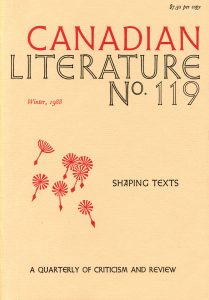
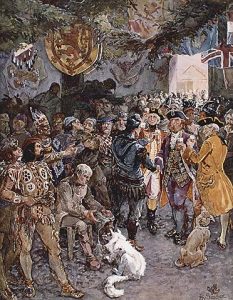

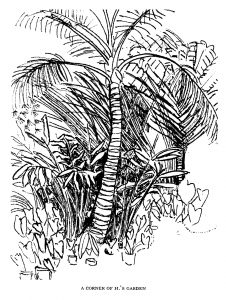
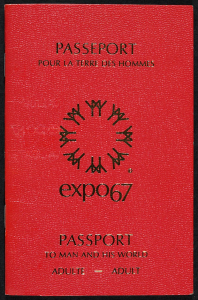
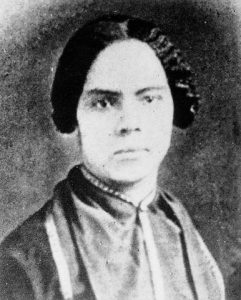
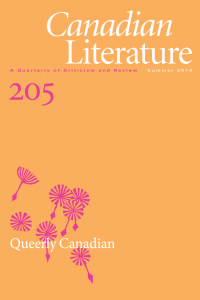
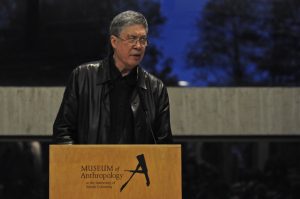
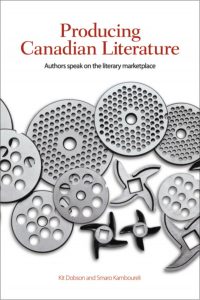
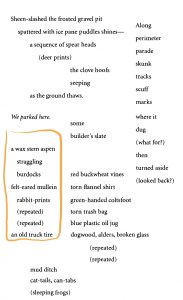
 ©
©